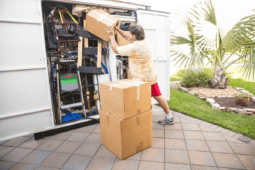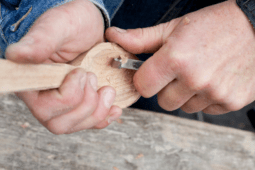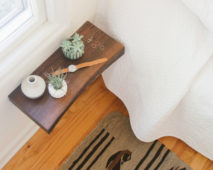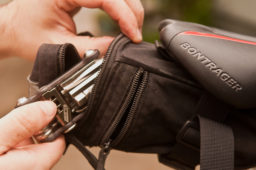Why We Meditate (and We Think You Should, Too)
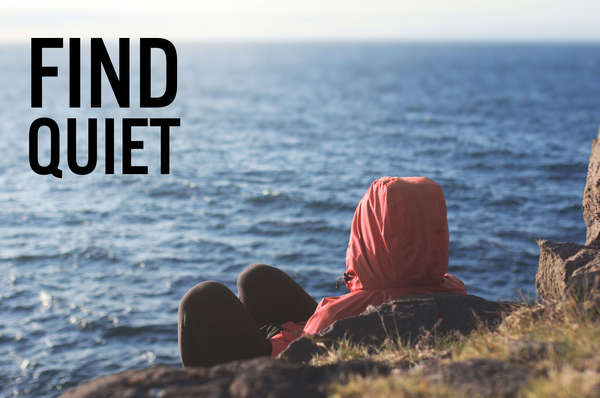
This year Chris and I both started meditating, independently of each other. We got into the practice for different reasons, and with different approaches, but the thing we definitely both agree on is this: meditation is great. Since we’re both newbie meditators who are getting a lot out of it, we thought we’d share a little about our experiences in hopes of encouraging a few of you out there to give it a try.
How did you start?
Bruno: I actually have tried meditation a few times over the last ten years or so, but never stuck with it for more than a couple of days. A few years back I picked up a copy of Mindfulness in Plain English (which I highly recommend), so I had a bit of a foundation to go on. This year for no reason in particular I made it one of my New Year’s resolutions to meditate every workday morning at 6am.
Chris: 2016 has been a bit of a sabbatical year for me, so as part of my rest and continuing education plan, I signed up for a 10-day silent Vipassana meditation retreat in the spring. They don’t cost any money and the retreat center is only two hours from my house, I was fortunate enough to have the time and flexibility to be able to commit to something like that. I’m always interested in new experiences, and so I figured there was no reason not to attend and learn some serious skills.
Why do you do it?
Bruno: To a certain extent, I do it because I promised myself I would (New Year’s resolution, see above). I’ve never been good at keeping routines or being really disciplined, so for some reason I don’t understand, this year felt like the right time to tackle that weakness in my personality.
Now that I’ve been at it for a while, I also do it because it feels good. Not euphoric, or mind-altering, but just calming and consistent. I’ve gotten to the point where the practice of meditating actually encourages me to get out of bed early, even on mornings when I’m tired and just want to hit the snooze button.
Chris: I signed up for the 10-day retreat because my wife has been practicing Vipassana meditation for several years, and started in the middle of our relationship. I was able to watch her become a different person, in both her other relationships and communities, as well as a spouse and someone who shares a life and home with me. So, I figured anything that affected someone I know so well so intensely, I wanted to know more.

What’s your routine?
Bruno: I set an alarm for 5:40 every workday morning. I started the year setting it at 6:00am, but have slowly been pushing it up to give myself a little more time. I keep a big glass of water by my bed, and I drink that as soon as my feet hit the floor.
(For people who have trouble getting up early, here’s a trick: start setting your alarm clock five minutes earlier. If you normally get up around 8:00, set it for 7:55. What difference does five minutes make? If you can get up at 8:00, you can get up at 7:55. Do that, and then once you’ve gotten up at that time a few mornings, set it five, or ten minutes earlier than that. This gradual progression adds up quickly, and before long you’ll be getting up at the crack of dawn.)
Then I go downstairs to the living room and do about 15 minutes of warm ups. That includes some simple stretches (if you’ve ever done a yoga class, think of some of those poses) to get my back and legs loosened up and my breath and heart rate up. There are two poses I always end with:
– I do a one-minute stretch pose, where you lie on your back, lifting your feet and head/shoulders off the ground, straightening your body out like a bow. Holding it for one minute is really hard for me, no matter how many times I’ve practiced it, so it’s a good challenge.
– A pose called ‘Ego Eradicator’, which is a weird, nonsensical name, but then, I don’t name these things. You sit cross-legged and hold both arms up in the air at about 45 degrees away from your body. Then you do a rapid, intense breath, using your stomach muscles to briskly force air out of your lungs as hard as you can. Two minutes will pick your heart rate up and clear your head.
Chris: We have an office in our basement that has a little alcove that’s our dedicated meditation area. I go down there the second I wake up, and leave my night time earplugs in. I set a timer using the i-Qi clock meditation app, which has some nice bell and singing bowl sounds that welcome me into the space. I find that getting started while I’m still groggy and waking up through the meditation process allows me to keep the clearest head and avoid distraction.
I shoot to do forty-five minutes during most work days, and sometimes thirty minutes on Fridays and weekends. I wish I had more time, but I also have some other interests that meet similar goals. Long, multihour bike rides, woodworking, personal disciplines, and other meditative, mind-quieting activities that complement this work.
How do you meditate?
Bruno: I usually set a timer (anywhere from 10-45 minutes depending on how I’m feeling) and just sit. I find a comfortable, upright, seated position, close my eyes and sit still. I breath easily, not forcing any particular type of breath. Just observing my breath and seeing what it’s doing. Watching it settle down from something fast and irregular into something very shallow and gentle and calm. When my mind wanders, I try to acknowledge those thoughts without judgement, and let them go.
Recently I’ve started mixing in guided meditations (tons are free online). Guided meditations are great because they remove the pressure having to figure out what you should be doing and thinking about.
Chris: I learned some specific processes at my Vipassana retreat that I’m still able to practice at home. They mostly involve sensation awareness and sweeps throughout the body, which you notice, and then avoid reacting too. Some days, I can’t quite get there, and so I just practice standard anapana meditation, which is about awareness of breath as a means to training the mind to be more tuned into physical sensations.

What does it feel like?
Bruno: It’s not easy. Many mornings I’m bad at it, and get off on random trains of thought. This is what meditators call Monkey Mind, and it’s a hard thing to control. For me, I know I’m doing something right when my body, especially my hands, which I rest on my knees, begin to feel light.
I also have learned to know what awareness feels like inside my head. To me it’s a feeling of focused energy right in front and above my eyes. It sort of feels like all the ‘energy’ in the room has accumulated in that spot, or gravitated toward that area. I’ll often also see a bright spot there, which I’m sure is just a result of me half-crossing my eyes and turning them upwards, but it still feels right.
Chris: When I get dialed in, it feels very physical, very active. The goal is to be mindfull, not mindless. A common misconception about meditation is that it’s like zoning out, losing yourself. It’s not. The act of being present is hard work; it almost feels like running a race or doing one big long pull-up or push-up. You’re holding a position in your body, and of awareness, and that takes work. The good thing is that when you do that work, you focus all your attention on the act, and like after a long workout, it becomes both restful and energizing.
It still hurts me, physically. Not tortuous, or an exercise in pain tolerance, but I have some old injuries that get triggered from sitting on the hard ground, no matter how many pillows or supports I use. In the style I learned, the goal is to not move, at all – to not open your eyes, legs, or hands – for the full session. That’s still somewhat painful for me. The goal is, of course, not to react to these sensations (or pleasant ones). If you can do that on the micro scale of meditation practice, then you’re training yourself not to react negatively to things in your real life.
What should I read/listen to to get started?
Bruno: I think Mindfulness in Plain English is a really good place to start. If you need more structure, try taking a yoga class. Lots of yoga centers will let you try one for free, and most yoga classes end with some sort of meditation practice.
Some guided meditation links here?
Chris: I agree with Bruno that some free yoga classes are a great low-risk way to begin. I’d also recommend the documentary The Dhamma Brothers, which isn’t a how-to, but a look at intensive meditation retreats in the U.S. prison system. You start to understand the why, and then you can bring on the “how”.
More than anything, I think not trying to DIY this one is the way to go. Go to a class. Sign up for a workshop. Go to a local retreat center (every city has several). I’m a super introvert, and most of my interests are self-taught. And it’s because of that I think learning from a real teacher is the best way to go. You can’t force it, and when you have guidance, you can shut down your autonomy enough to actually do the work, instead of just thinking to yourself… “Am I doing this right?”
Should I try it (rhetorical question)?
Bruno: Yes! I mean, listen, although meditation has been saddled with a hippie-dippy, far-out, squishy-self-help-ish reputation, it’s really undeserved. This is a practice that billions of normal people have used throughout centuries as a tool to improve their lives. It’s not some crap someone’s trying to sell you on an infomercial. It’s not some magical mystical club you’ll be joining. You will not start floating around two inches off the ground chanting in tongues.
But I really think there’s a good chance a meditation routine will make you feel good, get your day off to a better start, and reduce your levels of stress and anxiety.
Chris: Yeah, of course. But use it as a tool. Meditation is a means to bring about happiness, not the goal. The point isn’t to have meditated. It’s to learn skills, and shut down automatic reactions that harm your thinking and relationships. Meditation teaches you that things are always changing – tickles, numbness, pain, itches, sounds, a bug on your arm. They are there, and then they go away. When you react to things that are impermanent, you create stress and suffering.
Try it. If it works, you’ll be happier, and you’ll know it’s worthwhile. Just remember, “this too will change.” Nothing gives one a better sense of relief.
What do you think?
Any expert meditators out there? Tells us how and why you do it, or what we should try differently. If you haven’t tried it, why not? Do you think you’ll give it a shot?

